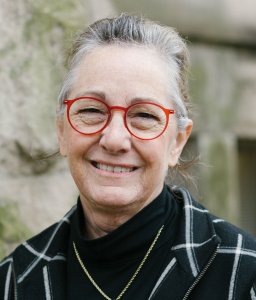BLOOMINGTON, Ind. – Last year we told you that NASA was hiring someone to be its real-life guardian of the planet. Well, they’ve filled the position, and we now have an Indiana University astrobiologist to rely on to protect us from aliens.
Lisa Pratt, Provost Professor in the IU Bloomington College of Arts and Sciences’ Department of Earth and Atmospheric Sciences, has been named the planetary protection officer at NASA.
The position is responsible for the protection of Earth from potential contamination by extraterrestrial life forms, including potential microorganisms that could live in the ice or groundwater of Mars, as well as preventing accidental transportation of Earth’s microbes to other planets through exploratory probes — or the boots of astronauts.

In other words, Pratt’s responsibilities include ensuring humans don’t contaminate space, and other organisms don’t contaminate Earth. So basically, she will need to stave off an alien invasion if necessary.
“I am excited about the opportunity to contribute to the mission of planetary protection at a defining moment in human evolution and the advancement of science,” said Pratt. “We are on the verge of becoming a spacefaring species, and I feel privileged to be invited into an extraordinary conversation, pushing the frontiers of science, exploration and discovery at NASA. This position plays a direct role in seeking evidence to address a profound question: Are we alone?”
Pratt has been a member of the IU faculty since 1987, where her research focuses on understanding how microorganisms adapt to extreme environments.
“If life does exist on Mars, which is a big ‘if,’ then we have a brief window of time remaining in which extraterrestrial life can be studied in near-isolation from terrestrial life,” she added.
Her position with NASA, at the agency’s headquarters in Washington, D.C., begins February 5. She will become a professor emerita at IU.











